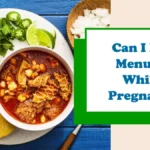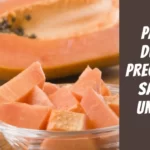
Pregnancy is a time when women need to be extra careful about what they eat. While some foods are considered safe and healthy for pregnant women, others can be harmful to both the mother and the baby. One food that often raises questions is olives. Olives are a popular ingredient in many dishes, but are they safe to eat during pregnancy? In this blog post on PregnancyBoss, we will explore the benefits and risks of consuming olives during pregnancy, and provide some tips on how to incorporate them into a healthy pregnancy diet.
Related: Can You Eat Bologna While Pregnant?
What are Olives?
Olives are a type of fruit that belong to the drupe family, which are often referred to as “stone fruits” due to the hard, stone-like pits found at their centers. Olives are native to the Mediterranean region, but they are now grown and eaten all over the world. There are more than 100 kinds of olives, and their trees can live far more than 2,000 years.
Olives are an important ingredient in traditional Mediterranean cuisines and are used to produce olive oil, which is one of the core ingredients in Middle Eastern cuisine and Mediterranean cuisine.
An estimated 90% of the olives grown worldwide are used to produce olive oil, while just 10% are destined to become table olives. Olives are known for their richly savory, complex, often salty flavor, and they are packed with health benefits. They are high in healthy monounsaturated fats, which help to fight inflammation and support heart health. Olives are also full of Vitamin E and other healthy antioxidants, making them a great way to get your daily nutrients.
Olives come in various colors, including green, black, and shades of brown, and they are versatile in their use. They can be eaten on their own, as an appetizer, or used as a component in a plethora of dishes, including pasta, stews, salads, charcuterie boards, and pizzas.
Related: Can I Have Truffles While Pregnant?
Can Pregnant Women eat Olives?
Yes, pregnant women can eat olives, but there are some precautions to keep in mind. Olives from a can, tin, or jar are much safer for pregnant women to eat than cured olives from a delicatessen or olive bar. Heat-treated olives are far less likely to be contaminated with listeria, so it is recommended to eat heat-treated olives (straight from a can or jar) in pregnancy. Olives in brine may be safer to eat than those in oil or marinade.
Pregnant women must avoid olives that are unpasteurized or pickled in vinegar, as these types of olives can harbor bacteria that can be harmful to both the mother and the baby. Instead, select olives that are pasteurized or packaged in water. It is also important to wash them thoroughly before eating them.
Pregnant women should avoid olives from buffets or delis as this may increase the risk of cross-contamination. The consumption of 6-7 olives per day during pregnancy can be beneficial, but moderation is key. Olives are a good source of healthy fats and antioxidants, both of which are important for pregnant women. The oleic acid present in olives is responsible for reducing blood cholesterol levels and protects the baby from asthma and several allergies.
Related: Can You Eat Cotija Cheese While Pregnant?
What is the Nutritional Value of Olives?

The following table shows the nutritional value of 100 grams (3.5 ounces) of rip, canned olives, including;
| Nutritional Value | Amount per 100 grams |
|---|---|
| Calories | 116-188 |
| Protein | 0.4-0.8 grams |
| Carbs | 1.5-6 grams |
| Sugar | 0-0.2 grams |
| Fiber | 0.4-6.25 grams |
| Fat | 10.9-16 grams |
Note The amount of nutritional value in olives may vary depending on the type of olives. Olives are also packaged in brine or saltwater, which can make them high in sodium, so it is important to eat them in moderation.
Related: Can I Eat Menudo While Pregnant?
What are the Benefits of eating Olives during Pregnancy?

Here are some of the benefits of eating olives during pregnancy:
- Olives are a good source of calcium, copper, vitamin E, and iron, all of which are important nutrients for pregnant women.
- The oleic acid present in olives is responsible for reducing blood cholesterol levels and protects the baby from asthma and several allergies.
- Olives can prevent anemia, especially the black ones, as they are stuffed with iron.
- Olives may support bone health, as they contain polyphenols, which are plant compounds with strong antioxidant properties that reduce the risk of bone loss.
- Olives are rich in antioxidants, including polyphenols, which reduce the risk of oxidative cell damage and protect the body against cancer.
- Olives can boost the immune system, as olive oil, which is derived from olives, kills pathogens and prevents infections from spreading, thus regulating the mother’s immune system.
- Olives are a good source of fiber, which helps prevent constipation, a common problem during pregnancy.
- Olives are low in calories, making them a healthy snack option for pregnant women.
- Olives are a good source of healthy fats, particularly oleic acid, which is linked to several health benefits, including decreased inflammation and a reduced risk of heart disease.
- Olives are a part of the Mediterranean diet, which is associated with a lower risk of gestational diabetes, pre-eclampsia, and preterm birth.
Related: Can You Drink Lipton Tea During Pregnancy?
What are the Risks of eating Olives during Pregnancy?

Here are the potential risks of consuming olives during pregnancy:
- Allergic reactions: While it is rare, some people may be allergic to olives. Allergic individuals may experience symptoms such as stomach pain, vomiting, nausea, and diarrhea.
- Risk of listeria contamination: Some studies suggest that olives prepared using certain methods may have a potential risk of listeria contamination. It is recommended to choose olives that have undergone full heat treatment, usually found in jars or tins, to ensure safety. Additionally, it is advised to avoid olives from buffets or delis as they may increase the risk of cross-contamination.
- High sodium content: Olives are often packaged in brine or saltwater, which can make them high in sodium. Consuming excessive sodium during pregnancy may lead to fluid retention and increased blood pressure. It is important to eat olives in moderation and consider low-sodium options.
- Gastrointestinal discomfort: Eating too many olives may cause gastrointestinal discomfort, such as bloating, gas, and diarrhea. This is because olives contain a high amount of fiber, which can be difficult to digest for some people.
- Risk of foodborne illness: Olives that are not properly stored or prepared may carry harmful bacteria, such as salmonella or E. coli, which can cause foodborne illness. Pregnant women are at a higher risk of developing severe complications from foodborne illness, so it is important to choose olives that have been properly processed and stored.
Related: Can Pregnant Women Eat Shrimp?
Is it safe to eat Black Olives in Pregnancy?

Yes, it is safe to eat black olives during pregnancy. Black olives are a good source of iron, which is crucial in pregnancy for preventing anemia. The oleic acid present in black olives is responsible for reducing blood cholesterol levels and protects the baby from asthma and several allergies. Black olives are also rich in antioxidants, including polyphenols, which reduce the risk of oxidative cell damage and protect the body against cancer.
Related: Difference between Green and Black Olives
Is it safe to eat Kalamata Olives in Pregnancy?

Kalamata Olives are a type of black olive that originates from Greece and are packed with essential nutrients like healthy fats, iron, calcium, and Vitamin E.
They are considered the king of olives. They boast an almond-like shape and possess a rich deep purple skin. Frequently featured in Italian dishes like pizza, these olives can be safely enjoyed by pregnant individuals when appropriately cooked. However, moderation is the key! Don’t go overboard, as they are also high in sodium, which can lead to water retention. Including them as a part of a balanced diet can be a tasty and nutritious addition.
Related: Is It Safe To Eat Instant Noodles During Pregnancy?
Does Craving Olives during Pregnancy Indicate Boy or Girl?

Craving olives during pregnancy is not indicative of the baby’s gender. Pregnancy cravings, including the desire for olives, are a common phenomenon and are not related to the sex of the baby. They are believed to be influenced by hormonal changes and nutritional needs during pregnancy. So, whether you are craving olives or any other food, it does not provide any information about whether you are having a boy or a girl. The baby’s gender is determined by the combination of chromosomes from both the mother and the father.
Related: What To Eat When Pregnant?
What are some other Common Food Cravings during Pregnancy?
Pregnancy cravings are sudden urges to eat a certain type of food or non-food that affect many females during pregnancy. Here are some of the most common food cravings during pregnancy:
- Sweets (chocolate, candy)
- Fruits and fruit juice
- Spicy food
- Salty foods, like chips and French fries
- Milk and other dairy
- Pickles
- Fast food
- Starchy carbohydrates, like bread and pasta
- Ice cream
- Red meat
- Lemons
- Cheese
- Fish
- Potatoes
- Sour fruits
- Ice
- Other sweet foods.
Conclusion
Olives are a healthy snack that can be consumed during pregnancy. They are a good source of iron, fiber, antioxidants, and oleic acid, which can help reduce blood cholesterol levels and protect the baby from asthma and allergies. However, there are some precautions to keep in mind when consuming olives during pregnancy. Pregnant women should avoid traditional cured olives from a deli or olive bar and limit their intake to about 6-7 olives per day. Canned olives are safer to eat, especially if they are heat-treated or in brine. In addition, pregnant women should be aware of the possible side effects of consuming olives during pregnancy, such as high sodium intake and the risk of listeria infection.
Overall, consuming olives during pregnancy can provide more than just vitamins and nutrients. It can benefit the prenatal health of the mother and the development of the baby.
Frequently Asked Questions (FAQs)
Can I eat olives during the first trimester of pregnancy?
Yes, olives can be safely consumed during the first trimester, but it’s essential to ensure they are of high quality and properly stored.
Are there any alternatives for olives if I’m allergic to them?
If you are allergic to olives, you can explore alternatives like avocados, nuts, or other fruits rich in healthy fats and essential nutrients.
How many olives can I consume per day during pregnancy?
Moderation is key. A handful of olives per day should be sufficient to enjoy their benefits without overloading on sodium.
Can olives help with pregnancy-related skin issues?
Yes, the vitamins and antioxidants in olives can contribute to improved skin health during pregnancy.
Can I eat olives if I have gestational diabetes?
Yes, olives can be beneficial for women with gestational diabetes due to their healthy fat content and positive impact on insulin sensitivity.
Can olives help prevent iron deficiency during pregnancy?
Yes, olives are a good source of iron and can contribute to preventing iron deficiency anemia in pregnant women.












